In this fascinating conversation, cosmologist and TED Fellow Katie Mack delves into everything from the Big Bang theory to what we see at the edge of the observable universe to a few ways the cosmos might end. Stay tuned to hear Mack recite an original poem on the wonder and marvel of existence. (This conversation, hosted by deputy director of the TED Fellows program, Lily James Olds, was part of a TED Membership event. Visit ted.com/membership to become a TED Member.)
Visit to get our entire library of TED Talks, transcripts, translations, personalized talk recommendations and more.
The TED Talks channel features the best talks and performances from the TED Conference, where the world’s leading thinkers and doers give the talk of their lives in 18 minutes (or less). Look for talks on Technology, Entertainment and Design — plus science, business, global issues, the arts and more. You’re welcome to link to or embed these videos, forward them to others and share these ideas with people you know.
Become a TED Member:
Follow TED on Twitter:
Like TED on Facebook:
Subscribe to our channel:
TED’s videos may be used for non-commercial purposes under a Creative Commons License, Attribution–Non Commercial–No Derivatives (or the CC BY – NC – ND 4.0 International) and in accordance with our TED Talks Usage Policy (). For more information on using TED for commercial purposes (e.g. employee learning, in a film or online course), please submit a Media Request at
Lily James Olds: Hi, Katie, welcome.
Katie Mack: Thank you.
Thanks for having me.
LJO: So happy to have you.
I would love if, for those of us
who are not astrophysicists,
you could return and help us
give a little refresher
on how the universe did begin
and how we know that.
KM: Right, right, yeah.
So we know actually quite a lot
about the early universe,
about the beginning of the universe,
because we can actually see it.
And this is the wildest part of astronomy,
that we can see
the beginning of the universe.
So the universe is
about 13.8 billion years old,
and when we look out into the cosmos,
we see distant galaxies.
And when we look at the distant ones,
they’re all moving away from us.
And so for a long time,
there’s been this idea that, well,
if the galaxies are moving
away from us now,
they must have been closer
in the past.
The universe in the past
must have been smaller in some sense,
hotter and denser,
everything packed into less space.
And that’s the Big Bang theory,
the idea that the universe was smaller
and denser and hotter in the past.
And we got really direct
evidence of that in the 1960s
when we’re able to actually see the light
from the very early universe.
So let me take one more step back.
When we look at a distant galaxy,
the light from that galaxy
takes some time to reach us.
So we see, you know,
we see a galaxy shining.
That light might have taken
a billion years to cross the space
between there and here.
We can see galaxies that are so distant
that the light took 10 billion years,
even 13 billion years to reach us,
and the universe is only
13.8 billion years old.
So what happens if you look
at something so far away
that the light has taken
more than, you know,
more than 13 billion years to reach us?
What happens when you try
and look at something even farther?
Well, there’s a limit
to how far you can look,
the observable universe,
and that limit is defined
by how long it takes light to travel.
So if something is so far away
that the light would take
15 billion years to reach us,
we can’t see it because the light
hasn’t gotten here yet.
But if we look at something
that’s, you know, so far away,
the light’s taken 13.8
billion years to reach us,
then what we’re looking at is a time
when the universe was just beginning.
We’re looking at the light
from the very beginning of the universe
and what we should see,
if we look at something that far away,
is fire, right?
So we take this idea
that the early universe was hot and dense,
everywhere in the cosmos was, like,
filled with this sort of roiling plasma.
And so if we look far enough away,
we should see it,
because we’re looking so far back in time
that we’re looking at the time
when the whole universe was on fire.
And we do see that shockingly,
we actually do see that.
When we use microwave telescopes,
we see this background light
every direction we look.
You know, at the edges
of our vision, is this heat, this fire,
and we know that it’s heat,
we can analyze the spectrum of the light
and we can see that this microwave light,
this radiation,
is the kind of light you get
when something is just glowing
because it’s hot.
And so we can see
that every direction we look,
if we look far enough away,
we’re looking so far back in time
that we’re seeing a universe
that is still on fire.
So that’s the Big Bang.
Exactly what happened,
you know, around that time,
how that fire got started,
that’s a whole other very complicated
story that we’re still figuring out.
So we think that, you know,
before the fiery part there was
this inflation, this rapid expansion.
Before that, maybe
there was a singularity,
maybe not, we don’t know.
We don’t know what started
that rapid expansion.
But we do know that for the first
380,000 years of the cosmos,
it was this sort of,
all of space was filled with this fire.
And we know that because we can see it.
LJO: It’s amazing.
Well, let’s get into some
of the juicy specifics
of how exactly the universe might end.
I know that you’ve talked to many
other cosmologists yourself
and there are a lot
of different theories on this.
Where do you think we should begin?
Dealer’s choice.
What’s in store for us?
KM: Well, so the one that is,
as far as we know, the most likely,
the one that we talk about the most
in cosmology, is the heat death.
So this is what I discussed
in my TED Talk,
and the idea there is that, you know,
the universe is currently expanding.
Galaxies are getting farther
and farther apart from each other.
When we measured the expansion,
it turned out that it was not
slowing down at all,
it was actually speeding up.
And that was like if you throw
a ball up into the air,
it slows down for a little while
and then just shoots off into space.
It’s very similar physics,
and we didn’t have any idea
why that should happen.
So we still don’t know
why that’s happening.
We attribute it to something
we call “dark energy.”
We don’t know what dark energy is.
It’s just something that seems
to be pushing things apart,
making the universe expand faster.
And because of that,
it looks like we will end up
with everything, really —
you know, all the galaxies
really isolated,
the stars will die away.
The universe will get
very dark, very cold.
And you know, we’ll end up
with this basically empty,
cold, dark, lonely universe.
And that’s called the heat death.
The reason it’s called the heat death
is because, like …
Everything’s decaying into,
like, the waste heat of creation.
So, you know, just as you can’t have
a machine that’s perfectly efficient,
it’ll always lose a little bit
of energy through friction.
That’s a property of physics in general,
it’s called the second law
of thermodynamics.
Everything sort of decays
into entropy, into disorder,
and that is called heat
from a physics perspective.
So the heat death is when nothing is left
but the waste heat of the universe.
Which is part of why it’s fun
to talk about the alternatives,
because we don’t know for sure
that the heat death will happen.
Partially because we don’t know
what dark energy is.
We don’t understand this stuff
that’s making the universe expand faster.
Maybe it’s just a property
of space where, you know,
space just has this sort of,
expansion built in,
and it’ll keep going the way it’s going.
But maybe it’s something
that changes over time.
Maybe it’ll turn around
and we’ll get a big crunch
and everything will come back together.
Or maybe it’ll become more powerful.
And then you end up with something
called a “Big Rip,”
where if the dark energy
becomes more powerful,
it starts to not just move galaxies
apart from each other,
but actually expand the space in galaxies
and move stars away from galaxies
and then pull apart planets and stars
and eventually destroy
the entire universe.
So those are other possibilities
that I talk about in the book.
Because we don’t know what dark energy is,
and we don’t know for sure
what it’ll do in the future.
LJO: I want to open up to some
of the questions from the audience.
Vasily asks,
“Have you ever asked the question
‘If there were no universe,
what would there be?’
This leads to the question
of what will be after the universe ends?”
KM: So I think that gets
into tricky questions
of how do you define universe, right?
So you can define universe
as being everything,
and then it becomes
a less clear question.
What does it mean for something
other than everything?
Then, you know, if there is anything else,
it’s by definition part of the universe.
But one of the ways we often talk
about the universe in cosmology,
is we talk about the observable universe,
where the observable universe
is the part of the cosmos we can see,
where the light has had time
to reach us since the Big Bang.
So I talked about that before.
The edge of the observable universe
is where we see that Big Bang light.
The actual universe,
we think extends far beyond
the edge of the observable universe.
The observable universe is just
a perspective thing.
It’s like a horizon when you’re on Earth,
you can only see so far
because of where you’re standing,
but the Earth keeps going
beyond the horizon.
And similarly, with the universe,
we’re pretty sure that it extends
much, much farther than what we can see,
what we can observe.
But we can see the observable
universe and we can study,
we can learn about
the observable universe,
and we can’t get any information
about what’s beyond it.
So, you know, that brings up things
like a multiverse,
where you can have regions of space
that are so far away from us
that they’re effectively another universe,
and those regions can have
a totally different history,
a totally different future,
different laws of physics even.
So, there are possibilities
for things that carry on
long after our observable universe
is decayed into entropy
or maybe meets another fate.
And there are even possibilities
where there could be higher
dimensions of space,
like directions that we can’t conceive,
you know, space that’s separated from us
by some other dimension of space,
some other direction
that we don’t, you know,
perpendicular to all of our
spatial directions,
which I can’t sort of envision.
But mathematically,
that makes sense in some ways.
So there are those kinds of possibilities.
And you know, you can get
into really weird stuff
about the nature of space and time
with you if you really dig into it.
But in the book,
I really just talk about our observable
universe in terms of the fate of that,
because that’s all we can really study.
I do talk a little bit
about the multiverse
and the possibilities
of other parts of space.
But in terms of what happens
when our universe is destroyed,
I mean, it depends on how it’s destroyed,
whether there’s, you know,
the observable universe is over
but there’s more space beyond it or not.
And that’s all the realm
of speculation at the moment.
LJO: So I want to switch
gears a little bit,
because one of the articles
that you wrote fairly recently
talked about how time and space
might not be real,
and how there might be a deeper,
more abstract mathematical
reality to the universe,
and that time and space
might just be what we perceive.
Can you tell us more about this?
How is this possible?
Talk about your mind doing backflips.
KM: Yeah, yeah, this is really wild.
So I first heard about this
a couple of years ago
where somebody was talking about how,
if you do calculations of particles
interacting with other particles,
like the kind of stuff relevant
to particle collider experiments
where you’re slamming protons
into each other
and measuring what happens
to the particles that come out,
there are ways to do those calculations
where you can kind of put them
into an abstract mathematical format
and do the calculation.
And then you get the same answer
as if you do the calculation
the usual way,
assuming, you know, it’s actually
particles moving through space
and interacting with each other
in space and time.
And since there are ways
to do some of these calculations
without making use
of the ideas of space or time,
you just have this sort of abstract
mathematical space,
it sort of suggests that maybe space
and time are not helping you
and not necessary for understanding
how these processes work.
And there is actually a lot
that you can calculate in physics
at the sort of, subatomic scale,
where space and time
are not salient variables.
They’re not part of the calculation.
And you get the right answer
when you do that.
And that sort of hints at this idea
that maybe space and time
are not the fundamental things
that govern how the universe works,
that you don’t have to assume
that, you know,
everything happens in a background
of a space measured by time.
If you talk to the theoretical physicists
who are working in these areas
and are actually doing these calculations,
doing these equations,
they will say things like,
“Oh yeah, we’ve known for years
that space and time are not fundamental.”
And you’re like, “Wait, what?”
LJO: I missed that memo.
KM: Yeah, no, totally.
And you dig down into it and they say,
“Well, you know, maybe they’re emergent.”
Maybe it’s like, you know,
they’re sort of real.
Like, we live in space,
we experience time.
But the actual, sort of,
fabric of the universe
is some other mathematical space
that just doesn’t map well
to space and time.
That’s not the same kind of thing,
doesn’t follow the same kind of rules.
But in some sense, you know,
maybe we are mathematical,
you know, some kind
of instantiation of mathematics
rather than objects in space
existing in time.
And that’s the more fundamental thing.
And it’s just that because of our
perspective, because of our experience,
we think we see objects in space and time.
In fact, that is not what
the universe is really made of.
LJO: I love that.
You know, it turns out
you are also a poet.
I don’t want to put you on the spot,
but I’m wondering,
I really love your poem “Disorientation,”
and I feel like it states
this really beautifully, actually.
I was wondering if you’d be willing
to read the last few stanzas?
KM: Sure, yeah, I can do that.
Yes, this was a poem I wrote
a few years ago,
and I wrote it
as a Twitter thread actually,
just because I thought
it would be kind of fun.
So each stanza is a tweet.
But it sort of encapsulates
how I think about the universe.
So, yeah, this is the last bit.
I want you to believe that the universe
is a vast, random, uncaring place
in which our species, our world,
has absolutely no significance
And I want you to believe
that the only response
is to make our own beauty
and meaning and to share it while we can
I want to make you wonder
what is out there.
What dreams may come in waves of radiation
across the breadth of an endless expanse.
What we may know, given time,
and what splendors
may never, ever reach us
I want to make it mean something to you.
That you are in the cosmos.
That you are of the cosmos.
That you were born from stardust
and to stardust you will return.
That you are a way for the universe
to be in awe of itself.
LJO: I love that.
Thank you so much, Katie.
Thank you for such a thoughtful
and engaging conversation.
It’s really been such a pleasure.

 Science & Technology5 years ago
Science & Technology5 years ago
 CNET5 years ago
CNET5 years ago
 People & Blogs3 years ago
People & Blogs3 years ago
 Wired6 years ago
Wired6 years ago
 Wired6 years ago
Wired6 years ago
 Wired6 years ago
Wired6 years ago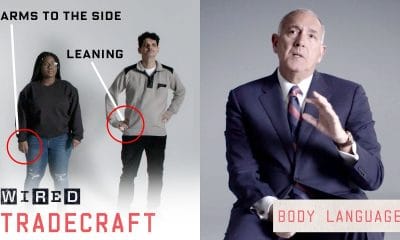
 Wired6 years ago
Wired6 years ago
 CNET5 years ago
CNET5 years ago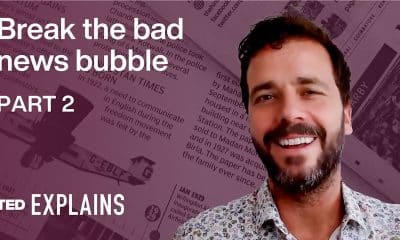

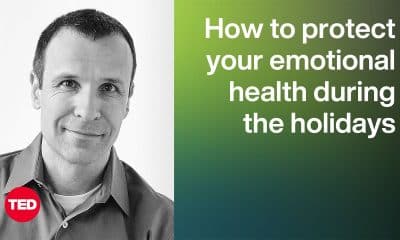

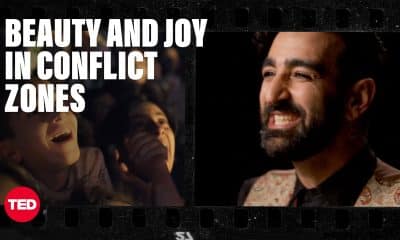





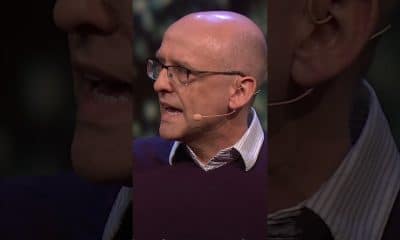


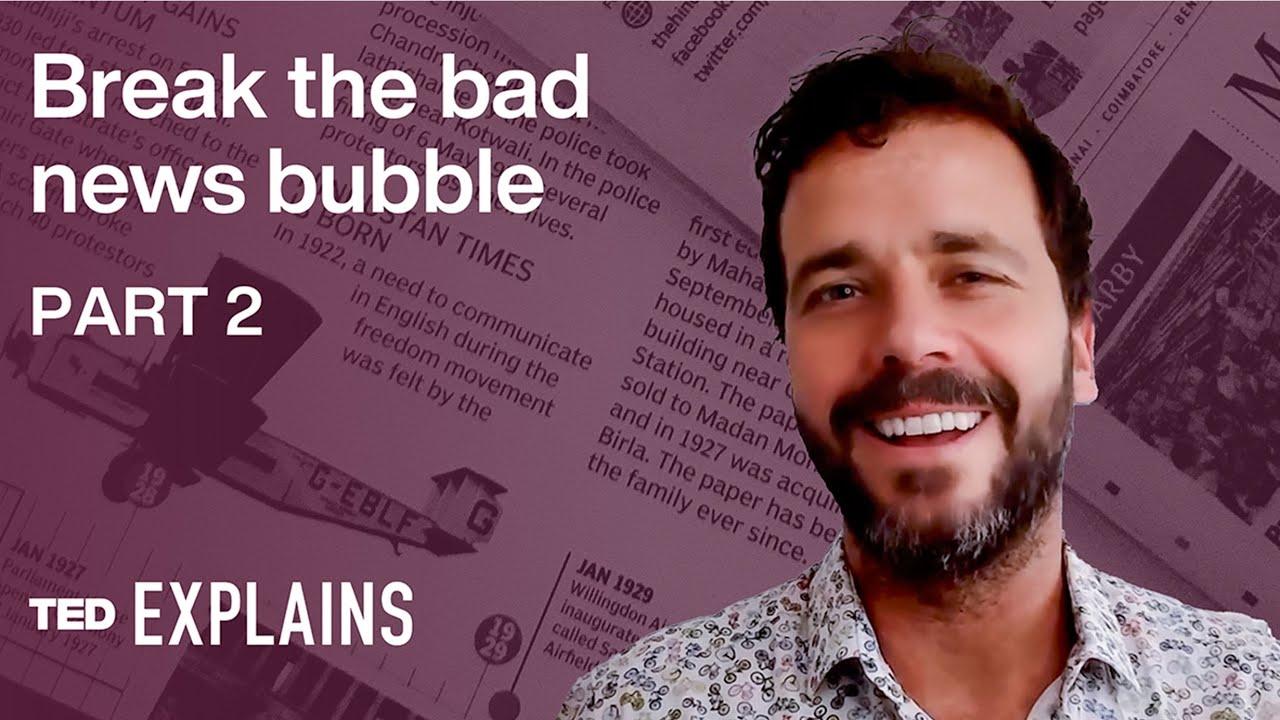
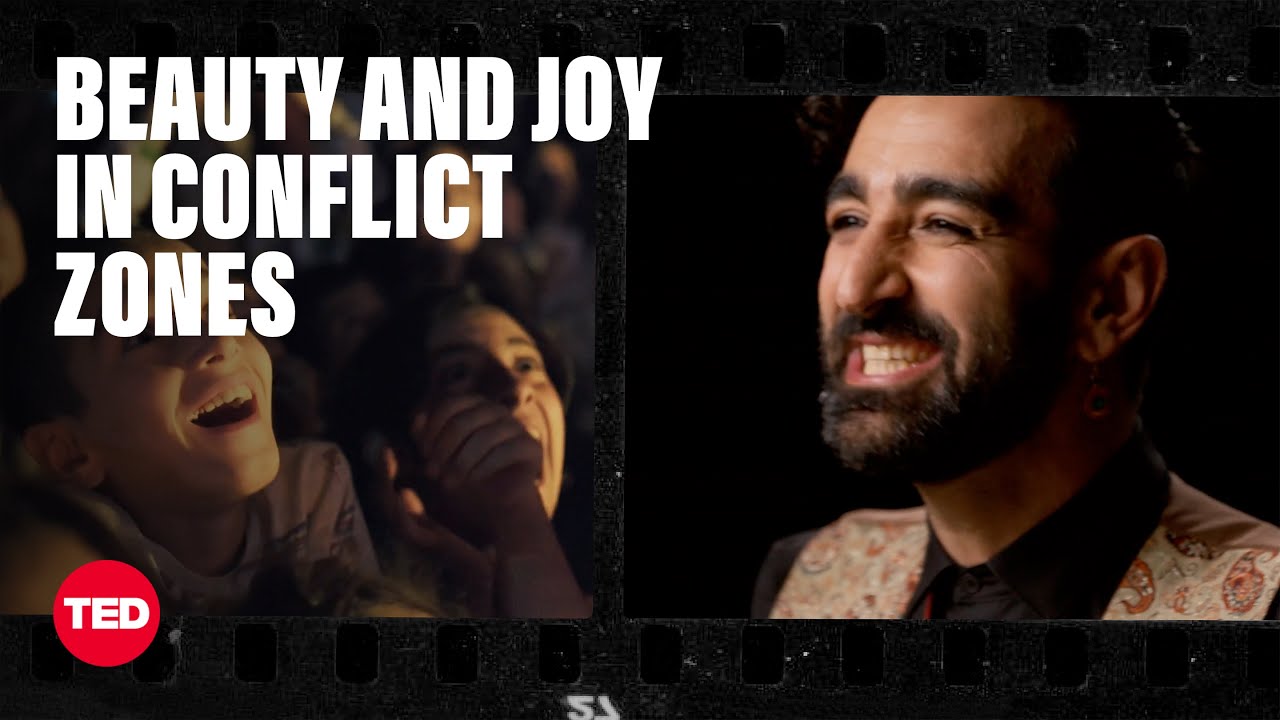



ioanes rakhmat
October 15, 2021 at 4:13 pm
Thx. When did “initial conditions” start? Is it possible that inflation preceded the big bang? Should the big bang be only one?
cloudpoint
October 15, 2021 at 5:02 pm
Cosmic Inflation is thought to have preceded the *hot* big bang event, the earliest moment that we have reasonable evidence for, and it also created the initial conditions for this event. We don’t have evidence for an earlier big bang event arising from a singularity and leading to Cosmic Inflation. Rinse and repeat universes seem plausible but no evidence yet exists.
UpDownMostly
October 15, 2021 at 4:31 pm
Man’s hubris…we have the mental capacity to understand the complexity of the universe. The more we learn, we realize the less we know. 🙂
Craig Thompson
October 15, 2021 at 4:39 pm
We should be careful on money useage,if you are not spending to earn back,then stop spending.
Austin Hay
October 15, 2021 at 5:27 pm
@Chris Clifford
Do you know how much that can be okay for a start?and I will grateful if you give me an easy way to contact him.
Brian Heffron
October 15, 2021 at 5:29 pm
Mr Richard McDonald has been my trader,his techniques are marvelous he made me see binary and forex trading from another angle.
Helen Kimberly
October 15, 2021 at 5:32 pm
Mr Richard McDonald has level up my financial status.
Downey Bellingham
October 15, 2021 at 5:33 pm
@Helen Kimberly
How can I contact him ,I want to invest too
Helen Kimberly
October 15, 2021 at 5:38 pm
@Downey Bellingham
Text him on what’s APK👇👇
cloudpoint
October 15, 2021 at 4:41 pm
How can I plan anything with all this uncertainty about the future? 🙂
Jock Campbell
October 15, 2021 at 5:03 pm
If you’re going to let theories about the universe affect your decision-making, then you’ve already succumbed to enslavement
S M MUZAMMIL HUSAIN LIPU
October 15, 2021 at 5:03 pm
Nice talk
Denis Goddard
October 15, 2021 at 5:05 pm
@11:45 worth mentioning Nima Arkani-Hamed and the Amplitudes project. See his Messenger lectures on “The Doom of Spacetime”
yukuhana
October 15, 2021 at 5:23 pm
Absolutely mind boggling, but that’s where it stops for me. In any scheme of things, the universe is mostly irrelevant.
jo ho
October 15, 2021 at 5:24 pm
Wow Thanks!
Tyrankoos
October 15, 2021 at 5:44 pm
we need to find a way to make a new universe or find the multiverse
M Markus
October 15, 2021 at 6:13 pm
*I’m startdust*
mousa abdu
October 15, 2021 at 6:45 pm
جميل
Jo Na
October 15, 2021 at 7:18 pm
This is so beautiful at so many levels, thanks for this really beautiful conversation about the universe. Usually the concept of universe is very depressing for me, I remember first time I feeling crazy about the idea of universe when I was 5 years old and that is when I took religion seriously to not to bother about the idea which I can’t comprehend. Well ultimately religion faded away and I am still there trying to escape.. Videos such as these are very refreshing on the topic, thanks for the positive and joyful attitude with the humble touches of ‘we don’t know’.
Ryan S
October 15, 2021 at 8:44 pm
Sounds like a big waste of time. A lot of ? and theories. Theories arent facts. Lets just pull our head out of the clouds and focus on our own horizon. Ted call me. Lol.
Krista
October 15, 2021 at 9:27 pm
That poem… I don’t normally enjoy/connect well with poetry. I loved her words
Amy Hatfield
October 15, 2021 at 9:37 pm
Very interesting❤️ God made a beautiful world
Randy Wagner
October 15, 2021 at 10:10 pm
Come to Ted saying you don’t know……. “here is the answers to the universe! Asking the what, … and failing…… the how is important. I hate Ted talks now. This is dumb.
Trevor Jennings
October 15, 2021 at 11:19 pm
Hello Randy👋👋
André Jacques
October 15, 2021 at 10:57 pm
Vocês acham mesmo que o Mundo tem somente 2021 anos? Quem pode interpretar a Teoria da Gênesis? Quem pode contestar o Livro Apocalipse?
Agir Verde
October 15, 2021 at 11:31 pm
Why we are so negative? And why we forget always who create the universe? The Big Ban appeared from one Magic! Cience don´t need to be blind!
NupeAtl
October 15, 2021 at 11:46 pm
Yep. Fucked.
plainoletracy
October 15, 2021 at 11:51 pm
I dig the way she explains things!!
CMDR After Hours
October 15, 2021 at 11:55 pm
And then you find out earth is not a ball and the jesuit religion called the heliocentric model is just a sad joke with zero emperical evidence. That’s if you do your own research and testing while also thinking for yourself. Cucks disregard.
Michael Niles
October 16, 2021 at 12:16 am
The microwave background radiation is the remnants of the hot dense star that birthed our universe as it crunched into a singularity and created our temporal dimension. It’s light will stay with us from the beginning and to the end of time. The “expansion” caused by “dark energy” is simply the emergent phenomena of each causal group traveling towards a temporal singularity, the only escape would be if FTL travel is possible. Depending on the mass of the singularity it’s possible that even molecular bonds will drift apart and every atom will be cold and alone.
Mark Porritt
October 16, 2021 at 12:20 am
End of the universe?! Has Katie not heard of the Omega Point?
Elijah Perrin
October 16, 2021 at 1:22 am
Is it possible the reason we see the universe expanding is because it is backwards to us? Instead of theorising dark matter pushing everything faster and further apart perhaps it is really collapsing and accelerating as gravity does on a solar system scale… gravity and time may be disconnected. Sorry if this is gibberish and rambling.
SAHIL BALANI
October 16, 2021 at 2:28 am
Release the talk with SHELL CEO I WANT TO SEE THE WHOLE TALK…TED
pinned-by tdx tks
October 16, 2021 at 3:20 pm
Thanks for watching
Send a direct msg right away
WhatsApp±¹³¹⁶³²⁰⁶⁵⁰⁶..
Joseph J
October 16, 2021 at 2:34 am
Love the knowledge she’s sharing!
Doug Ewald
October 16, 2021 at 5:53 am
Interesting contradiction in her “poem.” She wants the wonder of the universe to mean something to an “absolutely insignificant species.”
The rest of it was the standard cosmological guessing game.
She started by saying that we know quite a lot about the universe when in fact we “know” very little. It’s funny (but not really because too many people believe what people like those in her position say) seemingly smart people make factual statements about the age of the universe. They have no idea & are basing these statements on current observations which are inherently limited by current technology and extreme biases.
There should be a “for entertainment purposes only” disclaimer on this.
Someday science will finally come to the realization that the picture will only be more complete, true and accurate when the metaphysical basis of existence is accounted for.
Nice try little girls.
Age of atheism
October 16, 2021 at 6:50 am
The “Sagan” is strong with this one .Good job Katie.
Kateryna Turchyna
October 16, 2021 at 10:54 am
Wow, she’s so inspiring! Wish I studied for astrophysics 😀
Maya Uma
October 16, 2021 at 11:05 am
Just wanted to ask about the poem, because the other part is way beyond my knowledge: who is the one who says “I want You to…”? Thx
smileyface702
October 16, 2021 at 11:07 am
I first heard about her from Hozier’s song, No Plan. She did a fantastic job explaining this stuff.
Craig Bottomley
October 16, 2021 at 11:20 am
A bit far to say ‘life altering’,
“Idea, must, might, figuring out, maybe, we don’t know, don’t know for sure, we think”, when there’s a guessing game occuring.
Some of the stuff talked about here is starting to get philosophical.
MoniCast A New Way of Podcast
October 16, 2021 at 11:28 am
hmmmm,,, what’s outside the universe?
pinned-by tdx tks
October 16, 2021 at 3:08 pm
Thanks for watching
Send a direct msg right away
WhatsApp±¹³¹⁶³²⁰⁶⁵⁰⁶
pinned-by tedx taks
October 16, 2021 at 3:08 pm
Thanks for watching
Send a direct msg right away
WhatsApp±¹³¹⁶³²⁰⁶⁵⁰⁶
♜ Pinned by TED e
October 16, 2021 at 3:08 pm
Thanks for watching
Send a direct msg right away
WhatsApp±¹³¹⁶³²⁰⁶⁵⁰⁶
Thomas Darling
October 16, 2021 at 7:39 pm
This will be the death of me. Also you. And everyone. And everything.
pinned-by tdx tks
October 16, 2021 at 8:38 pm
Thanks for watching
Send a direct msg right away
WhatsApp±¹³¹⁶³²⁰⁶⁵⁰⁶. ..
pinned-by tedx taks
October 16, 2021 at 8:38 pm
Thanks for watching
Send a direct msg right away
WhatsApp±¹³¹⁶³²⁰⁶⁵⁰⁶. ..
♜ Pinned by TED e
October 16, 2021 at 8:38 pm
Thanks for watching
Send a direct msg right away
WhatsApp±¹³¹⁶³²⁰⁶⁵⁰⁶. ..
G C
October 16, 2021 at 10:19 pm
Nothing makes sense does it, where did the fire come from? I think the universe is made by design and resets as civilizations get bored when all there is to discover gets discovered purpose is lost and we go back to amoebas with the purpose of discovery and understanding. Like when you complete a game. Or maybe we are all part of one organic being if you look at someone’s eye it looks like a solar system and if you look at neurons they look like galaxies, maybe everything intertwines and is one and we just can’t comprehend it.
Vlada Vukovic
October 16, 2021 at 10:29 pm
What a bullshit!!!
Steven Cooper
October 16, 2021 at 10:47 pm
🤪🤪🤪🤪Bang, bang!
JBW1988 Warner
October 16, 2021 at 11:02 pm
Every second past is another begun
Ofipete
October 16, 2021 at 11:16 pm
Perhaps it all was just a big fart from the God that’s now dispersing 😇
Living For Him
October 17, 2021 at 12:17 am
Mankind will annihilate itself long before heat death
The Freshest
October 17, 2021 at 2:02 am
We actually can see further than 13.8 billion LY (40+ billion) because of inflation and dark energy. Objects close by are as old as distance, but further out light gets distorted.
Donald Charles
October 17, 2021 at 2:04 am
The universe is far much older than what we see! Lovely poem, true words.
Kevin Wells
October 17, 2021 at 3:44 am
She stated, not in so many words…
We are dust.
We are not essential, nor instrumental in our Universe.
We occupy space, but not time (certainly not everlasting time).
Who will take issue with this?
(Now I will sacrifice myself, it was a great talk. We need to appreciate every view, regardless of our own opinion. This is a tough one, but it’s somewhat natural and foundational to how we question our own existence. I loved it. But I still do have faith.)
Gadora Gadir
October 17, 2021 at 1:39 pm
Where is the universe expanding into??
Yaheya Khalid
October 20, 2021 at 10:51 am
The cosmos is everthing , i know its hard to imagine but everything is expanding . But i think that u are wondering where the universe sits .. its like a 4 dimensional space time continuum , strings of quantum foam ( something that a mammalian brain with limited senses and cognition can never comprehend or understand) …but can be extremely fascinating tho 🤪
Tony Clifton
October 17, 2021 at 4:54 pm
Our neurons look like strings of galaxies and both will die or end. Our universe may be pushing away on an adjacent universe while we’re slowly making the other universe expand or contract on the other “sides” Like soap bubbles fighting in a sink and hanging on. Soap bubbles don’t last, same goes for suns, galaxies, to the universe? multiverse ? clusterverse ? ( word I made up to name strings of multiverses )
Tunes of Ambience
October 17, 2021 at 5:39 pm
Very interesting, God makes the beautiful world….
Let's Review
October 20, 2021 at 9:24 am
That’s an assumption
lwc2009
October 18, 2021 at 2:02 am
what I get from this in summary – it brings home the realization that NOTHING IS FOREVER… sooner or later, everything comes to an end, … so, enjoy it while you can and make the most of it…the closing words of her poem are so absolutely appropriate for ending this TED talk…
Ross Gemmell
October 18, 2021 at 3:20 am
Lovely poem to end the conversation 😁👍🏻
Fred Maxwell
October 18, 2021 at 5:54 am
Investing in crypto now should be in every wise individuals list, in some month time you’ll be ecstatic with the decision you made today
Fred Maxwell
October 18, 2021 at 1:11 pm
216
Fred Maxwell
October 18, 2021 at 1:11 pm
545
Fred Maxwell
October 18, 2021 at 1:12 pm
7580
Fred Maxwell
October 18, 2021 at 1:13 pm
Send a message to him on WhatsApp
Richard Benson
October 18, 2021 at 1:19 pm
Thank, I just drop him a message 🙏
Ultra Blue
October 18, 2021 at 11:25 am
This explanation is obviously regurgitation information and there’s obviously a consensus on this but it’s not intuitive to me.
If the Big Bang is true, shouldn’t the light preceded us? So how is the light catch up to us? Or how do we catch up to it? What evidence of the Big Bang are they talking about ? This makes no sense to me
Zach C
October 18, 2021 at 3:00 pm
Katie Mack blocked me on Twitter because she thinks she is Gods gift to humanity and supports unhealthy lifestyles — hahaha
Marco Cruz
October 18, 2021 at 5:37 pm
None of this would happen without someone creating it, physicist always starts with that hot plasma but never desrcibes how and why and what could cause it to be so condensed that it become so dense that it finally explodes? Like how in the world could that happen? Every so called physicist think of it that way. Believe in G0d and humble yourselves who always think that they know everything.
Nothingness 》 Super-heated Plasma 》 BOOOOM! 》 2nd Law of Thermodynamics 》 Heat Death
Nothingness can’t produce things like that, only a higher power in higher place could do that. There’s no such thing in any natural way that nothingness could cause that to happen. Everything is designed by G0d. Take it or leave I’m just expressing myself.
Peter Weller
October 18, 2021 at 9:39 pm
No worries the guy that wrote this will be rearranged many many times before the universe will ever meet it’s end.
The four states of mater are all made of protons neutrons and electrons I certainly wouldn’t discount any negatives
Spinning wildly out there somewhere Would you Miss Mack?
Isikeli Tuituku
October 19, 2021 at 1:39 am
What a contradictory poem, view, thinking – just shows that Cosmologists do not have a clue whatsoever. If we are absolute random, uncaring and of no significance then we would not be wondering how come we are here. I cannot believe that and we may never know the full truth so here is my take just as we began with a big bang, the end is equally dramatic. Everything that has a beginning will have an end. Whatever force, energy, power, authority that began this universe will one day, hr, second will roll up the universe and evaporate it – then another big bang will produce a new one. By that time we, the common people will witness this creation as we become the new inhabitants of not just Earth but of the entire universe.
Ash Ryan
October 19, 2021 at 10:32 am
I feel so fking small
TiberiusNugicus
October 20, 2021 at 5:13 am
Isn’t this the bint who had a misscarriage over a scientists wearing a shirt featuring scantily clad women on it?
Nisar Nisar
October 20, 2021 at 7:51 am
[2] And the earth was without form, and void; and darkness was upon the face of the deep. And the Spirit of God moved upon the face of the waters.
Viral Mehta
October 20, 2021 at 4:50 pm
Space and time. Not being real . This statment can be understood by those who are on the path of quntom mechnics and not just the physics of the matter.
christina s.
October 21, 2021 at 10:57 am
I was under the impression we never lose energy, it’s just transferred